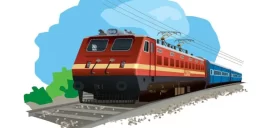Q.11 What is a tribunal and purpose of CAT.?
Ans: It is a forum appointed by a statute having powers to all adjudicate on the matter falling with in its jurisdiction. The Central Government has Established. Administrative tribunals with effective from Nov. Ist 1985. Purpose: Speedy and inexpensive adjudication or trial of disputes or complaints regarding recruitment and conditions of service of Central Government employees
Q.12 What is workmen’s compensation act 1923 and its features?
Ans: It provides for Payment of compensation to workers in case of accidents involving injuries to them or to their dependents in case of death. The Act also provides for a machinery to deal with claims of the workers. Important features:
1. Pay limit which was Rs.1000 hitherto) for a person in Schedule II to be a “Workman” has been removed. So now such a person shall be covered by this Act irrespective of his pay limit.
2. The amount of compensation will now be related to a ‘relevant factor’ has been given in Schedule IV.
3. ½ monthly payment will now be 25% of monthly wages.
4. Amount spent on medical treatment shall not be deemed as a payment or allowance received by worker 5. A new and more comprehensive Schedule III of Occupational diseases’ has been given.
Q.13 What are the objectives and applicability of factories act 1948?
Ans: The Act lays down the obligation of the occupier of a factory in the matter of cleanliness of the premises, disposal of wastes and effluents, maintenance of proper ventilation and temperature, prevention of overcrowding, provision of cool drinking water, latrines and urinals, fencing of machinery, maintenance of machines in safe condition, precautionary measures against fire hazard, provision of washing facilities, fixing of weekly holidays and payment of overtime allowance, prevention of accidents etc. The factories Act applied to all Railway Workshops and production units, but does not extend to Loco sheds and carriage and Wagon Depots which have been specially exempted.
Q.14 What are the objectives and applicability of payment of wages act 1936?
Ans: This Act Aims securing prompt and regular payment of wages with out any arbitration. Deductions to certain clause of person employed in Industrial Establishment including Railway either directly or through a sub – Contractor by a person full filling agreement with Railways and Employing or having employed twenty or more person are any day of proceeding 12 months.
Q.15 What is the classification of workers under HOER?
Ans: (i) Continuous: An employment is continuous except when it is “Excluded” or declared to be “Intensive” or “Essentially Intermittent”.
(ii) Intensive: An employment is intensive when declared to be so on grounds that it is of a strenuous nature involving continued mental or physical strain or hard manual labour with title or no periods of relaxation.
(iii) Essentially intermittent: An employment is essentially intermittent. When it is declared to be so on grounds that daily hours of duty normally include periods of inaction aggregating to six hours or more including at least one such period of not less than one hour or two such periods of not less than half an hour each during which the employee may be on duty but is not called upon to display either physical activity or sustained attention.
Q.16 What is the railway conduct rule 1966
Ans: The conduct rules which were revised as a result of recommendation of Shanthanam Committee and other prescribed the standard of conduct expected of every Railway servant and members of their family. All orders / instructions issued by Supervisors from time to time must be obeyed.
Q.17 What are the principles for natural justice?
Ans: Principle of natural justice are the principles which lay down and elaborate the reasonable opportunity which should be given to the charged employee. Principles:
1. The hearing must be impartial.
2. Reasonable opportunity should be given to defend the case.
3. Reasons for decisions should be made known to the accused.
4. The charges should be intimated in advance.
5. Justice should not only be done, it should also appear to have been done.
Q.18 Describe appointing authority ?
Ans Appointing Authority in relation to a Railway Servant means –
(a) the authority to make appointment to the service of which the railway servant is, for the time being a member or to be grade or the service in which the Railway servant is, for the time being included or
(b) the authority empowered to make appointments to the post which the Railway servant for the time being holds. Or
(c)The authority which appointed the Railway servant to such service, grade or post, as the case may be or
(d) where, the Railway servant having been a permanent member of any other service or having substantively held any other permanent post, has been in continuous employment under the Ministry of Railways, the authority which appointed him to that service or to any grade in that service or to that post, which ever authority is the highest authority.
Q.19 Describe disciplinary authority ?
Ans: (a) In relation to the imposition of a penalty on a Railway servant, the authority competent , to impose on him penalty is as per schedule in normal course and in case of imposing major penalties such authority would be Appointing Authority.
(b) In relation to Rule 9 (Major Penalty) and clauses (a) and (b) of sub rule (1) of Rule 11 (Minor Penalty) in the case of any Gazetted Officer, an authority competent to impose any of the penalties specified in Rules 6.
(c) In relation to Rule 9 in the case of any non-gazetted Railway servant, an authority competent to impose major penalties specified in Rule 6. An authority, who can impose any penalty under D&A rules, may impose a minor penalty. For initiating a disciplinary proceeding, an authority who is competent to impose a minor penalty, may issue the charge sheet. But as soon as he comes to know that based on the Inquiry (the punishment required to be imposed is not within his competence, he should forward the case to the competent authority.
Q.20 Define suspension under DA & R ?
Ans: Suspension is not a penalty.
(1) An employee may be placed under suspension –
(i) When a disciplinary proceeding is contemplated or pending against him or
(ii) When engaged in activities prejudicial to the interest of the State, or
(iii) When a criminal case is pending investigation, inquiry or trial.. (2) An employee shall be deemed to have been suspended:-
(i) If he remains in police custody for exceeding 48 hours.
(ii) If he is convicted for an offence and sentenced to imprisonment for a period exceeding 48 hours and is not forthwith dismissed removed or compulsorily retired
Q.21 Define deemed suspension under DA & R ?
Ans: When a penalty of dismissal, removal or compulsory retirement, imposed on an employee under suspension, is set aside on appeal or revision and the case is remitted for further inquiry or action, the order of his suspension shall be deemed to have continued in force from the date of the original order of dismissal etc.
Q.22 Describe subsistence allowance?
Ans: Subsistence Allowance is allowance granted to employee under suspension equal the leave salary an half average pay and allowance admissible on such pay.
Q.23 Mention any four types of minor penalties?
Ans: Minor: (i) Censure
(ii) Withholding of promotion for specified period.
(iii) Recovery from pay of the whole or part of any pecuniary loss caused to the Rly. Adm. by his negligence etc.
(a) Withholding of passes or PTOs or both
(b) Reduction to lower stage in time scale for not more than 3 yrs. Without cumulative effect and not affecting adversely his retirement dues. (iv) Withholding of increments (with or without cumulative effect).
Q.24 Mention any four types of major penalties?
Major: (1) Reduction to a lower stage (2) Reduction to a lower time-scale, grade, post or service (3) Compulsory Retirement (4) Removal (5) Dismissal.
Q.25 What is ex-party enquiry?
Ans: When charged employee refuses to participate the despite repeated sittings, but not when he is submitting Medical Certificate of sickness Ex-partee inquiry is conducted.

Disclaimer: The Information /News /Video provided in this Platform has been collected from different sources. We Believe that “Knowledge Is Power” and our aim is to create general awareness among people and make them powerful through easily accessible Information. NOTE: We do not take any responsibility of authenticity of Information/News/Videos.
This entry was posted in 2 Railway Employee, 6 Departmental Examination, Q Bank - AC Traction (Rolling Stock) -, Q Bank - Establishment, Railway Employee











